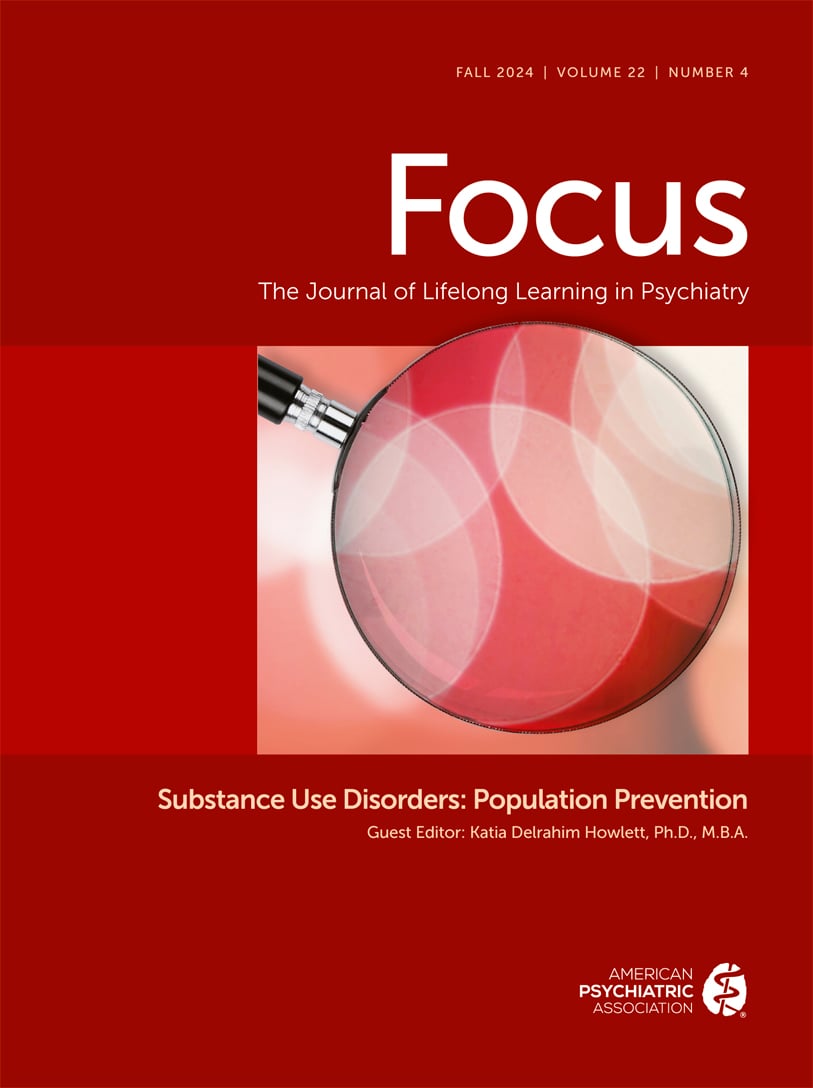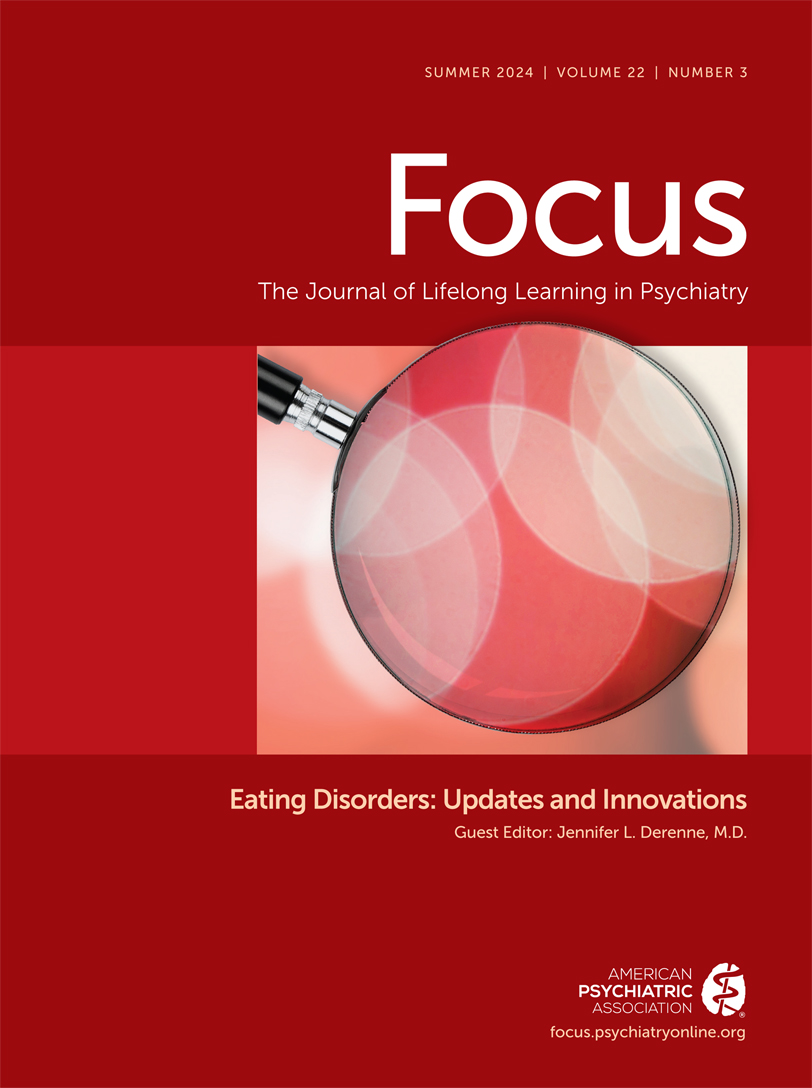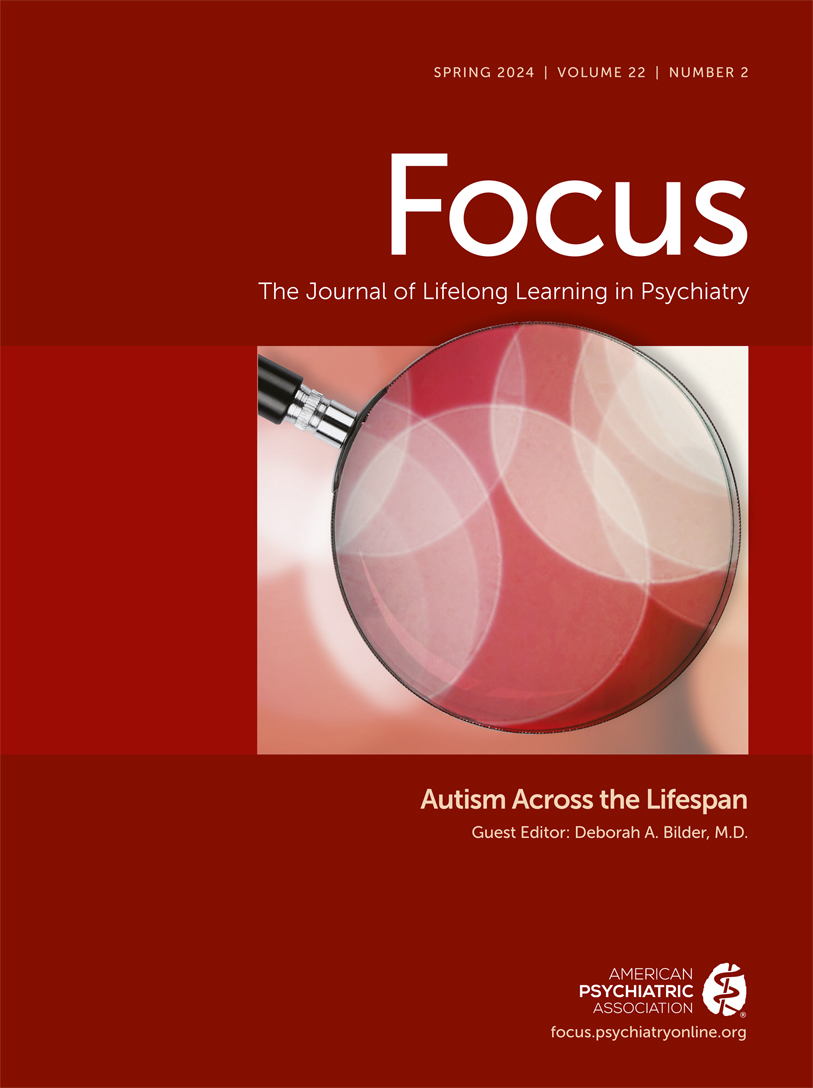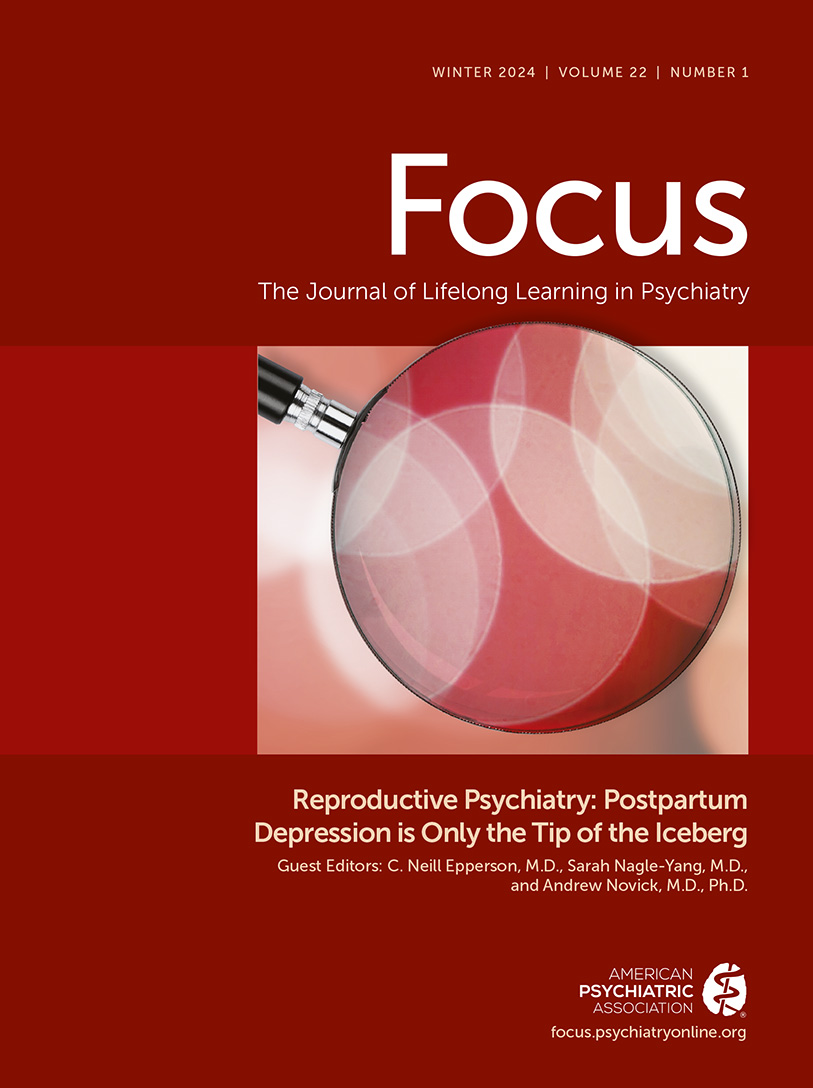Focus
- Volume 1
- Number 3
- July 2003
FROM THE EDITOR
CLINICAL SYNTHESIS
Publication date: 01 July 2003
Pages239–243Although the diagnostic features of posttraumatic stress disorder (PTSD) are well defined, the condition is not always easy to recognize; in studies in primary care settings, recognition rates as low as 2% have been reported. Somatization and comorbid ...
https://doi.org/10.1176/foc.1.3.239ERRATA
CLINICAL SYNTHESIS
REVIEW
Publication date: 01 July 2003
Pages247–262Posttraumatic stress disorder (PTSD) is a chronic, disabling disorder that affects 8%–9% of the population at some point in their lifetime. The disorder is associated with significant morbidity and functional impairment, affecting both patients and family ...
https://doi.org/10.1176/foc.1.3.247INFLUENTIAL PUBLICATION
Publication date: 01 July 2003
Pages263–264This section of the journal contains a compilation of recent publications that have shaped the thinking in the field as well as classic works that remain important to the subject reviewed in this issue. This bibliography has been compiled by experts in ...
https://doi.org/10.1176/foc.1.3.263Publication date: 01 July 2003
Pages273–281Objective: The study examined the efficacy of sertraline, compared with placebo, in sustaining improvement and preventing relapse over 28 weeks in patients with posttraumatic stress disorder (PTSD) who had completed a 12-week double-blind, placebo-...
https://doi.org/10.1176/foc.1.3.273Publication date: 01 July 2003
Pages282–289Objective: Early adverse life events may predispose individuals to the development of mood and anxiety disorders in adulthood, perhaps by inducing persistent changes in corticotropin-releasing factor (CRF) neuronal systems. The present study sought to ...
https://doi.org/10.1176/foc.1.3.282Publication date: 01 July 2003
Pages290–298Objective: Some prolonged and turbulent grief reactions include symptoms that differ from the DSM-IV criteria for major depressive disorder. The authors investigated a new diagnosis that would include these symptoms. Method: They developed observer-based ...
https://doi.org/10.1176/foc.1.3.290Publication date: 01 July 2003
Pages299–306Objective: The authors used self-report data to study patterns and predictors of treatment contact after the first onset of DSM-III-R mood, anxiety, and addictive disorders. Method: Data from the National Comorbidity Survey, a general population survey of ...
https://doi.org/10.1176/foc.1.3.299Publication date: 01 July 2003
Pages307–312Background: Psychological debriefing is widely used for trauma victims, but there is uncertainty about its efficacy. We have previously reported a randomised controlled trial which concluded that at 4 months it was ineffective. Aims: To evaluate the 3-...
https://doi.org/10.1176/foc.1.3.307Publication date: 01 July 2003
Pages313–321Recent advances on the neurobiology of posttraumatic stress disorder include: the utilization of functional brain imaging; the incorporation of cross-system research including neuroendocrine (hypothalamic-pituitary-adrenal and hypothalamic-pituitary-...
https://doi.org/10.1176/foc.1.3.313Publication date: 01 July 2003
Pages322–334Childhood psychic trauma appears to be a crucial etiological factor in the development of a number of serious disorders both in childhood and in adulthood. Like childhood rheumatic fever, psychic trauma sets a number of different problems into motion, any ...
https://doi.org/10.1176/foc.1.3.322Past Issues
View Issues Archive
Vol. 22 | No. 4

Vol. 22 | No. 3

Vol. 22 | No. 2
